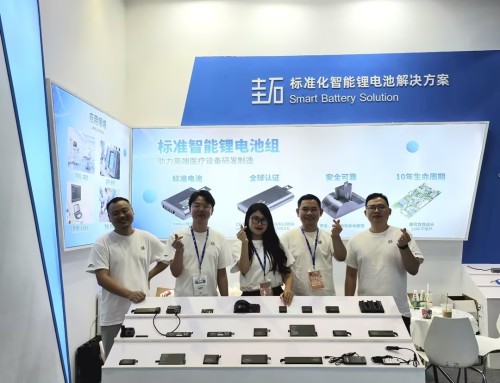Exploring the Distinctions: Smart Batteries vs. Non-Smart Batteries
Introduction to smart batteries and non-smart batteries
In today’s highly technological world, batteries are essential for powering various devices we use every day, such as smartphones, laptops, electric vehicles, and renewable energy systems. However, it’s important to note that not all batteries are the same. The difference between smart batteries and non-smart batteries is significant because it can greatly affect the performance, efficiency, and lifespan of the devices they power.
Smart batteries, also called intelligent batteries, have advanced electronic components that let them communicate with the devices they power. This communication allows the battery to provide important information about its charge level, temperature, and overall health. On the other hand, non-smart batteries cannot communicate and are basically “dumb” power sources.
As we learn more about batteries, it’s important to understand the differences between smart batteries and non-smart batteries. In this article, we’ll explore the key distinctions, advantages, and uses of these two types, as well as the factors to consider when deciding between them.
Understanding the differences between smart batteries and non-smart batteries
The main difference between smart batteries and non-smart batteries is their ability to communicate and share important information. Smart batteries have microprocessors and sensors that let them monitor and report different parameters, such as:
- Charge Level: Smart batteries can accurately report their remaining charge level, enabling devices to display precise battery life estimates.
- Temperature: Smart batteries can monitor their internal temperature, which is crucial for optimal performance and safety.
- Cycle Count: Smart batteries can track the number of charge/discharge cycles, providing valuable insights into their remaining lifespan.
- Battery Chemistry: Smart batteries can identify their specific battery chemistry, enabling devices to adjust charging algorithms accordingly.
In contrast, batteries without smart features do not have these advanced communication capabilities. They can only give a basic voltage reading, which may not accurately show how much charge is left or the overall health of the battery.
Another difference between smart and non-smart batteries is their charging algorithms. Smart batteries can optimize the charging process by considering factors such as temperature, charge level, and battery chemistry. This helps to extend battery life and ensure safe charging. In contrast, non-smart batteries use simpler charging algorithms that may not be as efficient or tailored to the specific battery type.
Benefits of using smart batteries
The advantages of using smart batteries are numerous and can significantly enhance the user experience and overall performance of the devices they power. Here are some of the key benefits:
- Improved Battery Life: Smart batteries can communicate their charge level and other parameters, allowing devices to optimize power management and extend battery life.
- Enhanced Safety: By monitoring temperature and other critical factors, smart batteries can prevent overcharging, overheating, and other potential safety hazards.
- Accurate Battery Monitoring: Smart batteries provide precise information about remaining charge level, cycle count, and overall battery health, enabling users to plan their device usage and replacement cycles accordingly.
- Optimized Charging: Smart batteries can communicate with chargers to ensure efficient and tailored charging algorithms, reducing the risk of overcharging or undercharging.
- Future-Proof Compatibility: As battery technologies evolve, smart batteries can adapt and communicate with newer devices and charging systems, ensuring compatibility and longevity.
Common applications for smart batteries
Smart batteries have found widespread adoption across various industries and applications due to their enhanced capabilities and benefits. Some common applications include:
- Consumer Electronics: Smart batteries are widely used in smartphones, laptops, tablets, and other portable devices, where accurate battery monitoring and efficient power management are crucial.
- Electric Vehicles (EVs): The automotive industry has embraced smart battery technology for electric and hybrid vehicles, enabling advanced battery management systems and ensuring safe and efficient operation.
- Renewable Energy Systems: Smart batteries play a vital role in renewable energy systems, such as solar and wind power installations, where they store and manage energy efficiently.
- Medical Devices: In the medical field, smart batteries are employed in critical equipment like defibrillators and patient monitoring devices, where reliable power and accurate battery information are essential.
- Industrial and Military Applications: Smart batteries are used in various industrial and military applications, including robotics, drones, and communication systems, where ruggedness, reliability, and accurate battery data are paramount.
Factors to consider when choosing between smart batteries and non-smart batteries
While smart batteries offer numerous advantages, there are certain factors to consider when choosing between smart and non-smart batteries for a particular application:
- Cost: Smart batteries typically carry a higher upfront cost due to their advanced components and manufacturing processes.
- Power Requirements: For applications with relatively low power requirements or where battery life is not a critical factor, non-smart batteries may be a more cost-effective option.
- Environmental Conditions: Smart batteries are better suited for harsh or extreme environmental conditions, as they can monitor and adjust for factors like temperature and humidity.
- Device Compatibility: Ensure that the device or system is compatible with smart battery technology and can take full advantage of the advanced features.
- Battery Replacement and Maintenance: Smart batteries may require specialized replacement and maintenance procedures, which could impact overall lifecycle costs.
Smart battery technology advancements
The field of smart battery technology is continuously evolving, with researchers and manufacturers working to improve performance, efficiency, and safety. Some of the notable advancements in smart battery technology include:
- Improved Battery Management Systems (BMS): Advanced BMSs are being developed to provide even more precise monitoring and control of battery parameters, ensuring optimal performance and longevity.
- Wireless Communication: Smart batteries are increasingly incorporating wireless communication capabilities, enabling remote monitoring and data collection for predictive maintenance and analytics.
- Solid-State Batteries: Next-generation solid-state batteries are being developed, which promise higher energy density, improved safety, and longer lifespans, while still benefiting from smart battery features.
- Artificial Intelligence (AI) and Machine Learning (ML): AI and ML algorithms are being integrated into smart battery systems, enabling predictive analytics, optimized charging strategies, and improved battery life estimation.
- Modular and Scalable Designs: Smart battery systems are becoming more modular and scalable, allowing for easy integration into various applications and enabling seamless capacity expansion or replacement.
Smart Battery Manufacturer Recommendation
When it comes to choosing a reputable and reliable smart battery manufacturer, one company that stands out is TEFOO ENERGY. With years of experience in the industry and a commitment to innovation, TEFOO ENERGY has established itself as a leader in smart battery technology.
TEFOO ENERGY offers a diverse range of smart battery solutions that cater to critical sectors such as medical equipment, industrial instruments, and even military applications. Their product line extends beyond consumer electronics, showcasing their versatility and commitment to high-performance energy solutions across various industries.
Key features of TEFOO ENERGY’s batteries for specialized applications:
- Medical Equipment:
-
- Precise charge level monitoring for reliable operation in critical medical devices
- Temperature control to ensure safety in sensitive healthcare environments
- Optimized charging algorithms for extended battery life in long-term use medical equipment
- Industrial Instruments:
-
- Robust design to withstand harsh industrial conditions
- Advanced monitoring capabilities for seamless integration with industrial control systems
- High energy density to power demanding industrial applications
- Military-grade Applications:
-
- Enhanced durability and reliability to meet rigorous military standards
- Secure communication protocols for sensitive military operations
- Extreme temperature tolerance for diverse operational environments
Global Certification:
TEFOO ENERGY’s commitment to quality and safety is evident in their pursuit of global certifications. This ensures that their batteries meet international standards and regulations, making them suitable for use in various countries and compliant with strict industry requirements.
Stable Supply Chain and Production Line:
The company has established a robust and stable supply chain, which is crucial for maintaining consistent quality and meeting the demands of critical sectors. Their well-established production line ensures:
- Consistent product quality
- Timely delivery to meet customer demands
- Ability to scale production for large-scale projects
- Flexibility to adapt to changing market needs
By focusing on these specialized applications and maintaining high standards in certification and production, TEFOO ENERGY positions itself as a reliable provider of smart battery solutions for industries where performance, safety, and consistency are paramount. Their advanced features, such as precise monitoring and optimized charging algorithms, make their batteries particularly suitable for applications where accuracy and reliability are critical, such as in medical equipment, industrial instruments, and military-grade devices.
If you’re in the market for high-quality smart batteries, TEFOO ENERGY is a brand you can trust to deliver reliable, cutting-edge products that meet your specific needs.
Conclusion and final thoughts
As battery technology advances, it’s crucial to understand the difference between smart batteries and non-smart batteries. Smart batteries have several benefits, such as longer battery life, increased safety, precise monitoring, optimized charging, and compatibility with future developments.
While non-smart batteries may still be useful in certain situations where less power is needed or battery life is not important, smart batteries offer undeniable advantages. As technology progresses, we can anticipate more innovative features and enhancements in smart battery technology, reinforcing their position as the preferred option for various applications.




